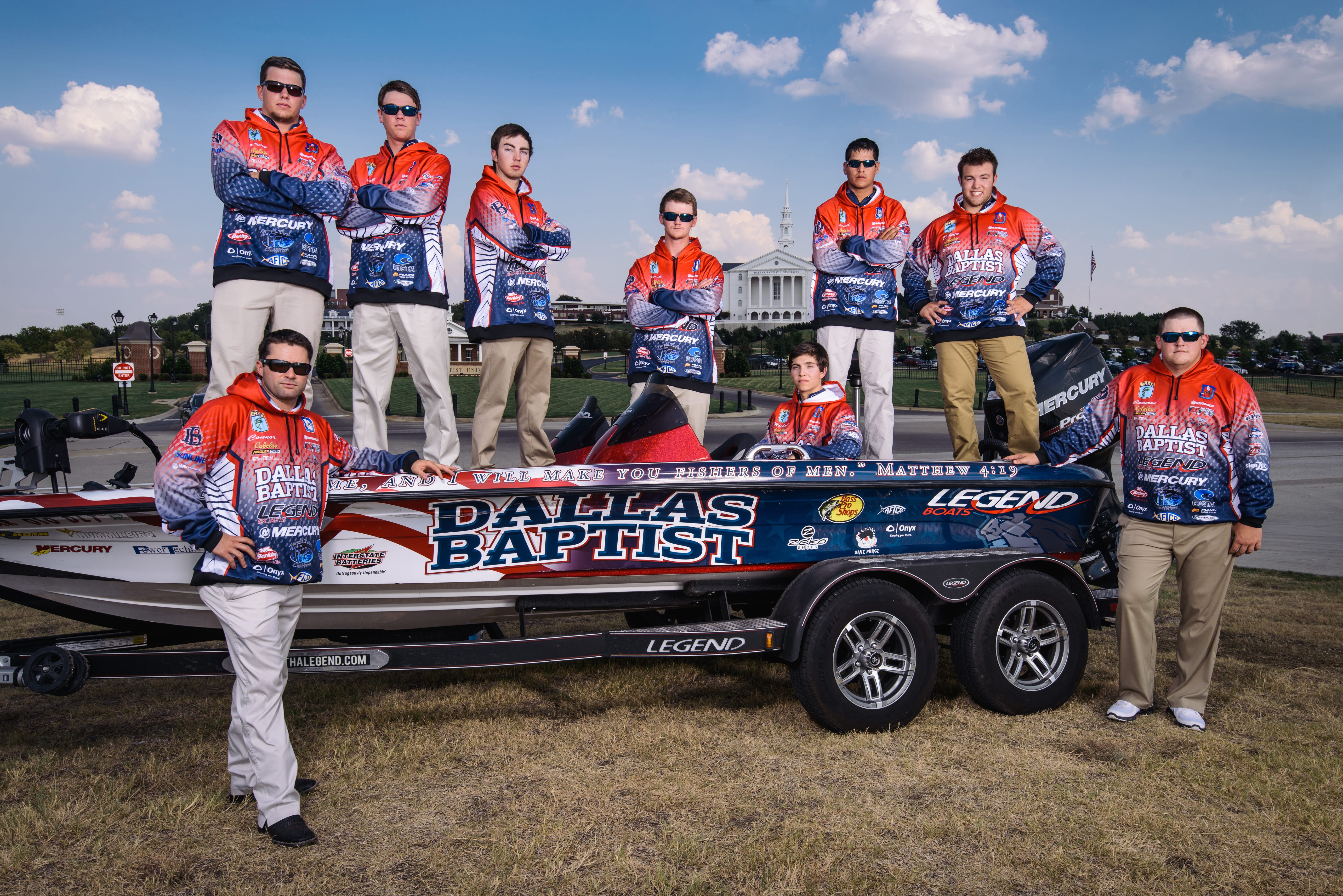Written by Steve Schwartz, Lone Star Outdoor News
More than 260 schools competed in Cabela’s Collegiate Bass Fishing Tournament Series in 2013 — a notable growth from previous years. This growth not only proves the sport is here to stay in the college environment, but defines a new type of college athlete.
“It was a goal since high school to come up here and be president of this club,” Shelby Hutchens said, with a tone generally reserved for conversations regarding storied football programs or basketball teams. “I can actually remember watching the team when I was in high school, when they won their first championship.”
Hutchens is referring to the Stephen F. Austin Bass Fishing Club, which is one of the top-ranked teams in the nation. He is the president of the club, and a junior at the college.
The club status for the program means the majority of the money won from their tournaments goes back to the club — not in the anglers’ pockets — and only 10 percent of the winnings go to the actual university. Hutchens said the money is used to outfit the club for future tournaments.
“It’s a very special opportunity for us, to go out there and fish and be reimbursed,” he said. “It gives us a chance to chase our dreams.”
The bass fishing team is a different beast from other club sports, in that the members can win cash in their competitions. While in this case the funds go back to the club, it is their prerogative as to how they spend their money. This is especially important in regards to criticism the NCAA has received for allegedly reaping profits from athletes’ performance and status.
Reed Foster, a sophomore at Dallas Baptist University (also one of the top Texas teams on the tournament series), is fishing his first year on the DBU team, which is included in the university’s athletic program.
“The bass team is treated just like any other athletic sport,” Foster said. “I came here from another school because their (bass) program wasn’t run as well as it should have been.”
The final usage of their winnings is similar to Stephen F. Austin, but with much different fine print, Foster said.
“If we win a check, it all goes back to the school,” he said. “But I think most of it goes back to our program. People who fish and don’t wear the school’s name on their back — they get to keep their winnings.”
Foster said he didn’t mind that the team members didn’t get to pocket their winnings, the school provides all the team needs to fish — and win — in the tournaments.
Wade Middleton, the director of Cabela’s Collegiate Bass Series, said the popularity for the college competitions has been enormous in the past few years, and it isn’t showing any signs of slowing down.
“It (the interest) is really high again,” Middleton said. “You continue to see schools create new programs, which is really exciting for me. A lot of the schools are even creating their own events and tournaments.”
While financial benefit from winnings is helpful to anglers, Middleton said it most likely isn’t enough to make any ripples with the NCAA.
“Fishing is very expensive, and generally the payouts are just not strong enough,” he said.
But the financial benefits are only the beginning of the positive effects bass fishing can have in the collegiate environment, he said.
“I can’t tell you how many kids within college fishing are now in the outdoor industry,” Middleton said. “In the next few years will we produce some of the next elite professional fishermen? We absolutely will. But they (the students) are a lot closer to the industry. We (Cabela’s) just hired a few kids that used to be the presidents of their bass clubs.”
Middleton said alumni support is also a benefit for the programs. Many former students, now anglers, are in full support of funding their alma mater’s bass fishing program.
Regardless, bass fishing in the college environment is gaining traction, and is definitely seen as more than a hobby.
“I’ll talk to people on campus, and tell them I’m on the bass team, and they’ll say ‘That’s legit, y’all are ranked,’” Foster said. “This year is has really grown, and people see us as more than a club.”
There are 14 active anglers on the DBU team, Foster said, but only four who fish tournaments representing the school. SFA’s club team has between 30 and 40 members, Hutchens pointed out, and a very diverse student base.
“All of us are in such different areas academically,” he said. “But most of these guys were born and raised to win tournaments. We are nice to each other overall, but there is definitely a competitive nature to the sport. It’s good for the guys who are looking to take the next step.”
Foster said the DBU team takes their competition seriously, and while many are welcomed to join, they won’t be guaranteed a spot on the tournament team.
“If you want to fish, you can come out and fish; we would train you just like any other sport,” he said. “You definitely have to have some credits to your name if you want to compete, we’ve finished in the top 10 in every tournament we’ve fished.”
It’s obvious the athletes take their programs seriously — just as seriously as any other sport. Middleton said the schools are taking notice, the alumni are taking notice, and soon it will be a staple in the college environment. How could it not be?
“It doesn’t matter if it’s bass fishing or tiddlywinks,” he said. “People love to root for their school.”


